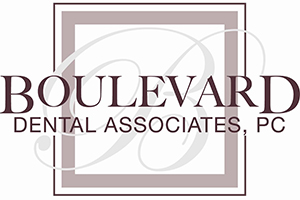
You likely hear a lot about what foods are not good for your oral health, but you may not be as aware of what nutrients are essential for your mouth. We have compiled and summarized information from several dental articles that reveal that your diet not only affects your overall health—it significantly impacts the health of your mouth as well.
Calcium:
Necessity: According to an article by the Academy of General Dentistry (AGD), entitled, “Nutrition,” your teeth and jaws are made mostly of calcium, so without it, you can develop gum disease and tooth decay. An online Mouth Health article by the American Dental Association (ADA) called “Nutrition: What You Eat Affects Your Teeth” explains that calcium protects and rebuilds tooth enamel.
Food Sources: The above article by the AGD states that calcium is found in many foods and liquids, such as milk, yogurt, cheese, beans, and oysters. The above ADA Mouth Healthy article explains that it can also be found in calcium-fortified tofu, leafy greens, and almonds. And another article by the ADA, “Nutrition and Oral Health,” adds that in the United States, an estimated 72 percent of calcium intake occurs from the consumption of dairy and products to which dairy has been added. In addition, they mention numerous plant-based milk alternatives that have become popular, such as products made with soy, almond oats, nuts, potatoes, or flaxseed.
Vitamin C:
Necessity: Vitamin C is essential because without it, you can develop loose teeth and gums that bleed (AGD).
Food Sources: Sweet potatoes, raw red peppers, and oranges are all examples of food that contain vitamin C (AGD).
Vitamin D:
Necessity: Vitamin D is necessary because it helps your body absorb calcium, and a lack of it can lead to burning mouth syndrome (a burning mouth sensation, a metallic or bitter taste in the mouth, and dry mouth) (AGD).
Food Sources: Milk, egg yolks, and fish are all foods that the AGD recommends for vitamin D intake.
Iron:
Necessity: A deficiency of iron can cause your tongue to become inflamed, and can lead to mouth sores (AGD).
Food Sources: Liver, red meat, and other-iron rich food like bran cereals, some nuts, and spices are all suggested as iron-rich foods by the AGD.
Vitamin B3 (Niacin):
Necessity: A lack of vitamin B3 (niacin) can lead to bad breath and canker sores (AGD).
Food Sources: The AGD recommends chicken and fish for vitamin B3 intake.
Vitamins B12 & B2 (Riboflavin):
Necessity: A lack of B12 and B2 (riboflavin) can also lead to the development of mouth sores (AGD).
Food Sources: Red meat, chicken, liver, pork, and fish, as well as dairy products like milk, yogurt, and cheese are good sources of vitamin B12. B2 is found in foods like pasta, bagels, spinach, and almonds (AGD).
Phosphorus:
Necessity: The ADA Mouth Healthy article states that phosphorous protects and rebuilds tooth enamel.
Food Sources: This article adds that protein-rich foods like meat, poultry, fish, milk, and eggs are the best sources of phosphorus.
Vitamin A:
Necessity: Vitamin A builds tooth enamel, adds the ADA Mouth Healthy article.
Food Sources: Orange and yellow vegetables and fruits, broccoli, spinach, most dark green leafy vegetables, eggs, fortified breakfast cereals, as well as milks are all examples of sources of vitamin A.
Fruits & Vegetables:
Fruits and vegetables contain many of the nutrients above, and they also contain high amounts of water and fiber. This water and fiber allows them to balance the sugars these foods contain, and helps them to clean the teeth. They also help stimulate saliva production, and saliva washes harmful acids and food particles away from the teeth and helps to neutralize harmful acids, thus protecting teeth from decay.
We recognize that for many people, the subject of what they eat can be a touchy one. That said, we at Boulevard Dental hope that we have provided you with further motivation to make healthy food choices…for your overall health and for your oral health!
References:
American Dental Association. Nutrition: What You Eat Affects Your Teeth. Mouth Healthy. https://www.ada.org/en/member-center/oral-health-topics/nutrition-and-oral-health. Accessed July 6, 2021.
American Dental Association. Nutrition and Oral Health. https://www.ada.org/en/member-center/oral-health-topics/nutrition-and-oral-health. Accessed July 6, 2021.
Academy of General Dentistry. Nutrition. AGD Impact. March 2007; 31.
